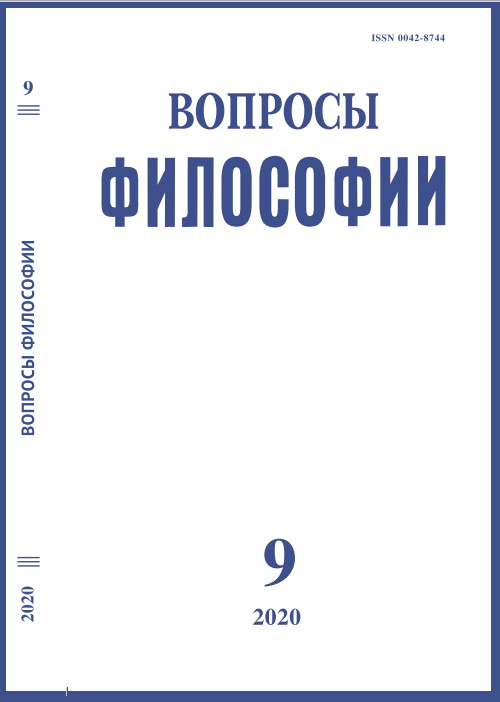Plotinus’ Doctrine on the Intellection and Consciousness of the One and Its Immediate Analogues
DOI:
https://doi.org/10.21146/0042-8744-2020-9-178-189Keywords:
ancient philosophy, neoplatonism, metaphysics, ontology, henology, noology, thinking, knowledge, consciousness, Plotinus, Porphyry, Marius VictorinusAbstract
In this article the author analyzes some key fragments of Plotinus, in which he argues that the One (or the absolute Principle) has a special kind of intellection and consciousness. The author also establishes the sources of this doctrine and its possible meaning, and, for the better understanding, gives two examples of a similar doctrine from the history of Neoplatonism of III–IV centuries. It has been shown that, despite the radical transcendence of the One, which due to its absolute perfection and simplicity, rises above the realm of being and thinking, and does not need to think or be aware of itself, since this would suggest a duality and a distinction between the thinker and the thinkable, Plotinus, nevertheless, ascribes to the One a certain kind of intellection and consciousness that is superior to the intellection of the Intellect. Such intellection, or rather, “superintellection” (ὑπερνόησις) of the One is absolutely simple and primary, and at the same time infinite in its potency; it is like pure contemplation which is not directed at any object; it is undifferentiated, does not contain any subject-object relations and is completely identical with the One itself, being its pure energy constituting its essence. These statements could be confirmed indirectly by Plotinus’s teaching about the nature of the mystical union of human soul with the One, when the soul surpasses everything exterior, turns inward and contemplates the One as a pure light, completely merging with it in an undifferentiated knowledge. To confirm this and to point to the development of Plotinus’s thought, the author considers similar doctrines of the two Neoplatonists of the late III – mid IV centuries – Porphyry and Marius Victorinus, according to whom the One (in the Christian context – God the Father) possesses an absolutely simple, primary and undifferentiated knowledge directed itself and coinciding with its own being.

